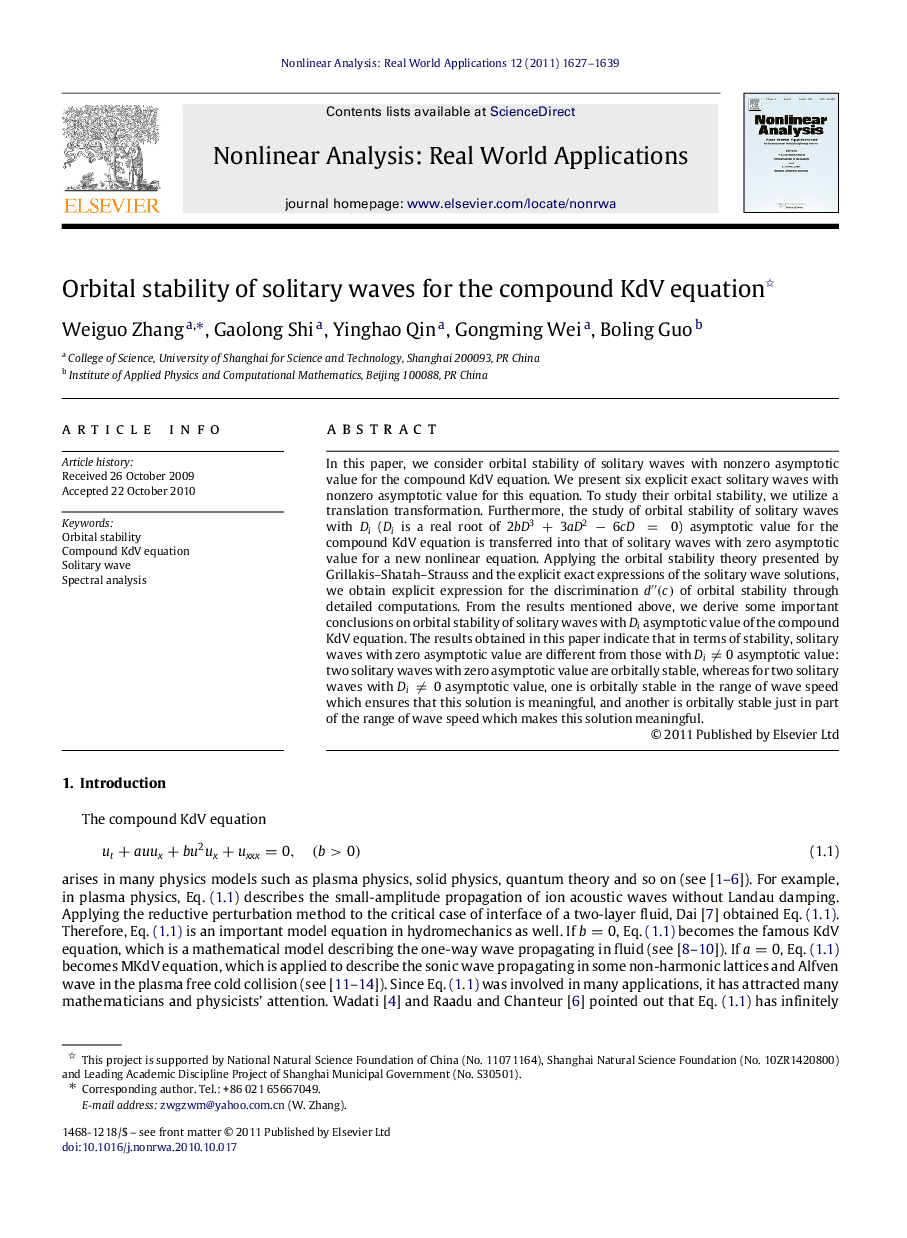| Article ID | Journal | Published Year | Pages | File Type |
|---|---|---|---|---|
| 837859 | Nonlinear Analysis: Real World Applications | 2011 | 13 Pages |
In this paper, we consider orbital stability of solitary waves with nonzero asymptotic value for the compound KdV equation. We present six explicit exact solitary waves with nonzero asymptotic value for this equation. To study their orbital stability, we utilize a translation transformation. Furthermore, the study of orbital stability of solitary waves with DiDi (DiDi is a real root of 2bD3+3aD2−6cD=02bD3+3aD2−6cD=0) asymptotic value for the compound KdV equation is transferred into that of solitary waves with zero asymptotic value for a new nonlinear equation. Applying the orbital stability theory presented by Grillakis–Shatah–Strauss and the explicit exact expressions of the solitary wave solutions, we obtain explicit expression for the discrimination d″(c)d″(c) of orbital stability through detailed computations. From the results mentioned above, we derive some important conclusions on orbital stability of solitary waves with DiDi asymptotic value of the compound KdV equation. The results obtained in this paper indicate that in terms of stability, solitary waves with zero asymptotic value are different from those with Di≠0Di≠0 asymptotic value: two solitary waves with zero asymptotic value are orbitally stable, whereas for two solitary waves with Di≠0Di≠0 asymptotic value, one is orbitally stable in the range of wave speed which ensures that this solution is meaningful, and another is orbitally stable just in part of the range of wave speed which makes this solution meaningful.
